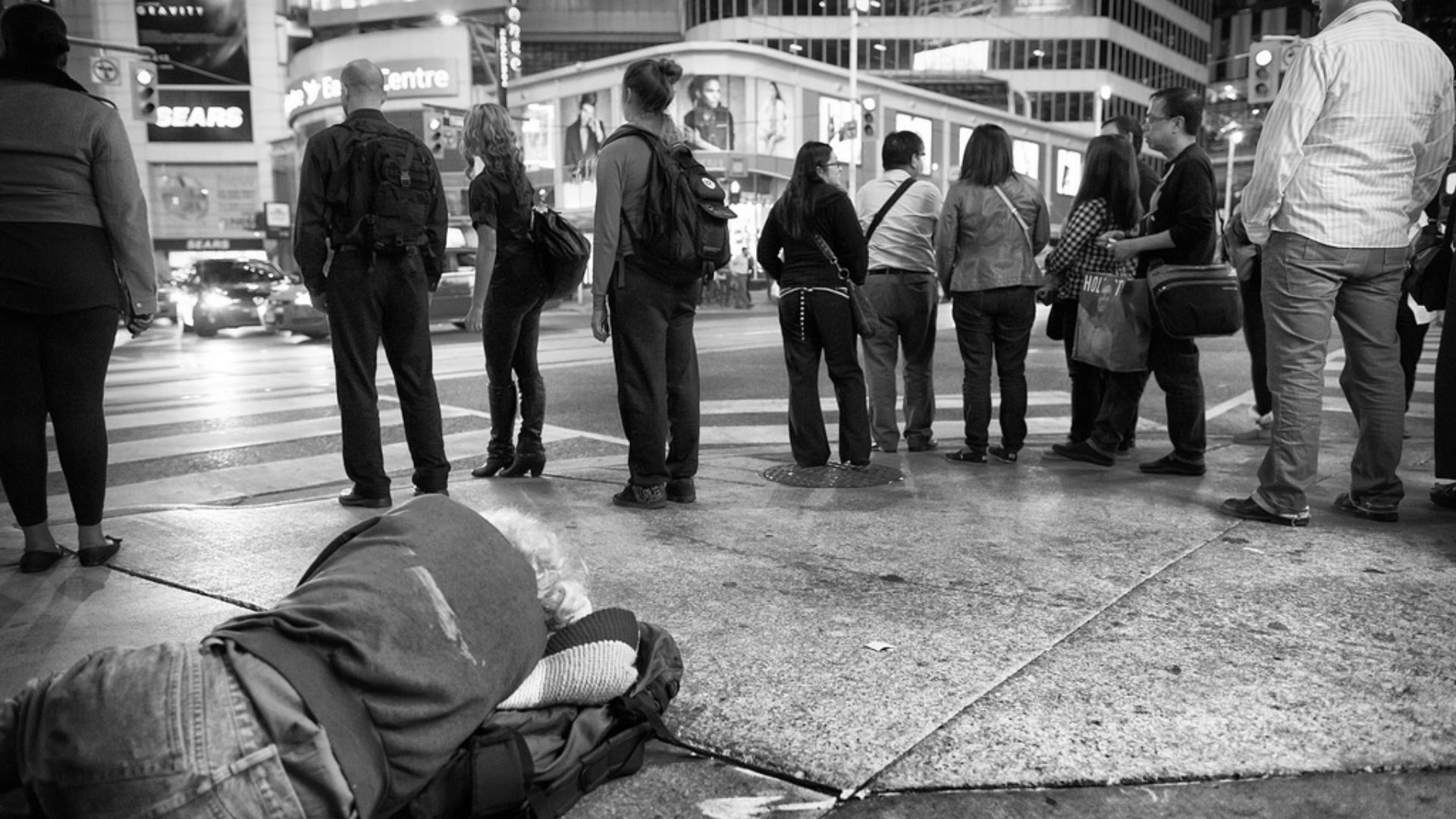My name is Mark Bjorkman. I have a new life in Christ, and I am recovering from fear of man.
This past year has been a tough one for me, yet God’s grace has never been so tangible and so nourishing. Little did I know when I signed up for the Residency program that the Lord would use this year not only to refine my knowledge of Scripture, but also to heal my broken view of myself and others. I signed up for re:generation (our 12-step recovery program) within the first month of moving to Dallas and starting the Residency. As I walk through recovery, the Lord is showing me more and more that my view of self and others not only has profound impact on my faith but also on the way I view poverty.
Poverty Comes from Four Broken Relationships
In their book When Helping Hurts, Steve Corbett and Brian Fikkert examine the fact that poverty is not simply about material “have" or "have-not." Instead, poverty comes from brokenness in four fundamental relationships: with God, with self, with others, and with the rest of creation. Every instance of poverty we see in the world finds its root in these four broken relationships.
For the past few months, we have been periodically examining these relationships and how they lead to poverty. Jeff Ward introduced this topic and examined the broken relationship with God (which I highly recommend reading). Then we looked at the broken relationship people have with themselves, and today we will look at our broken relationships with others - and how that connects with the poverty we see here in DFW and around the world.
The evidence of broken relationships between people is all around us - whether you see it in your living room with your family or on the news reminding us of another killing, another bombing, more political unrest. We feel the weight of a world that is overrun with brokenness in how we relate to each other. And God is not surprised.
When God created Adam and Eve, he made them to bear his perfect image - including making them inherently relational. We were made to live in perfect relationship with others, reflecting the perfection of relationship existent within the Trinity. However, the introduction of sin into the world infused relationships with jealousy, insecurity, enmity, hostility, and death. From Genesis to Revelation, broken relationships flood the pages of Scripture.
For some people, those broken relationships contribute to chronic, material poverty. So how does that happen?
Broken Relationships with Others Can Lead to Poverty
Sometimes, broken relationships with others may start a person on a slope into poverty. For instance, an inability to get along with authority - like one's boss or the police - may make keeping employment difficult or may lead to prison. Disrupted relationships with family members, roommates, or neighbors can cause those people to be unavailable to help through the "bumps" of life - or might even lead someone to run away from home at an early age. Even early difficulties with teachers or classmates may lead someone to drop out of high school or miss out on further education. Sometimes broken relationships even erupt in violence, which can lead to prison or to financial difficulties because of injury or property destruction.
You can likely think of other ways broken relationships could lead people into poverty: like absent fathers or mothers, abuse within relationships, estrangement from a church family, and so on.
Our society is built on relationships. For many, relationships are an enormous source of support and care. For others, broken relationships may lead individuals and families into an impoverished lifestyle that has ramifications for generations to come
Broken Relationships with Others Can Keep People in Poverty
Each of these broken relationships can certainly help keep someone in poverty, too. And once they've faced numerous broken relationships, it's likely that the poor will begin to isolate on purpose... leading further and further away from relationships that might help.
One more type of broken relationship can prolong chronic poverty, as well: the poor's relationship with strangers who might assist them. (This is where you and I come in.)
Consider your initial response to the poor you encounter. Apprehension? Mistrust? Avoidance? I confess that in my life I have exhibited all of these responses, and unfortunately I know I am not unique. These are the responses that most people, Christian or not, tend to have toward the poor in our society, especially here in DFW. For those living in poverty, this is another relational hurdle.
The currency of relationships is trust, and those in poverty are often already in the negative - with potential or former employers, with family members they've had conflict with, with strangers, and unfortunately also with those in the Church.
Those who are stuck in the cycle of poverty arguably need the greatest amount of support. Yet if support is based upon relationships - and mistrust, avoidance, or past relational "breaks" have produced barriers to developing healthy relationships - what hope is there?
The causes of poverty are complex. Poverty is not only material and cannot be simply answered materially - it is a poverty of relationship. So we can only truly help if we help break the cycle of broken relationships for those in our communities. This is how they will know we are His disciples - by our love (John 13:35).
Photo Credit: Kat" class="redactor-linkify-object">https://www.flickr.com/photos/... Northern Lights Man via Compfightcc
Be sure to check out External Focus blog weekly at watermark.org/blog/external-focus!
